Potting Soil Ingredients
Here’s what you need to know about some common container soil ingredients
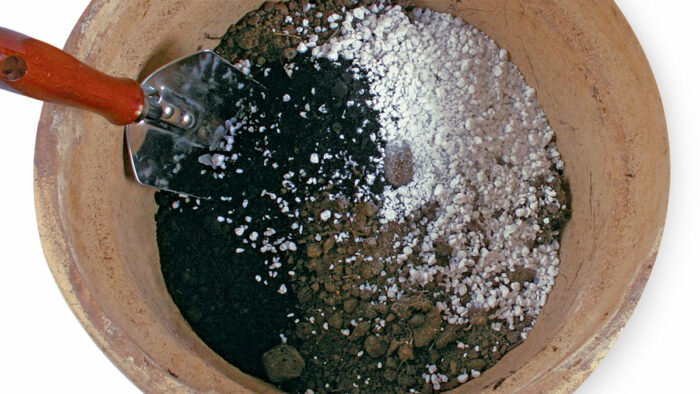
All you need for a good potting soil are ample nutrients and good drainage. Certain materials affect fertility, others have an impact on drainage, and some do both. Knowing the benefits that certain ingredients provide will help you tweak your own blends and make knowledgeable substitutions when needed.
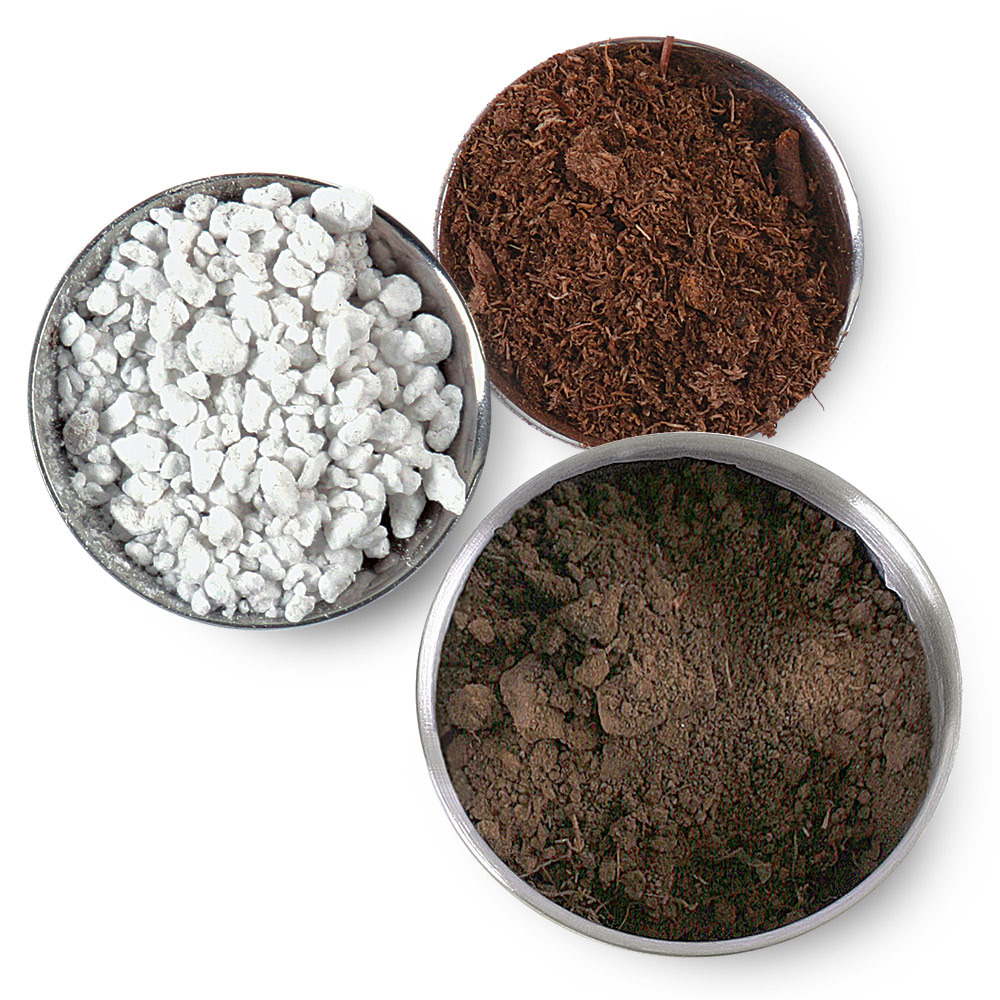
The Ingredients
 |
 |
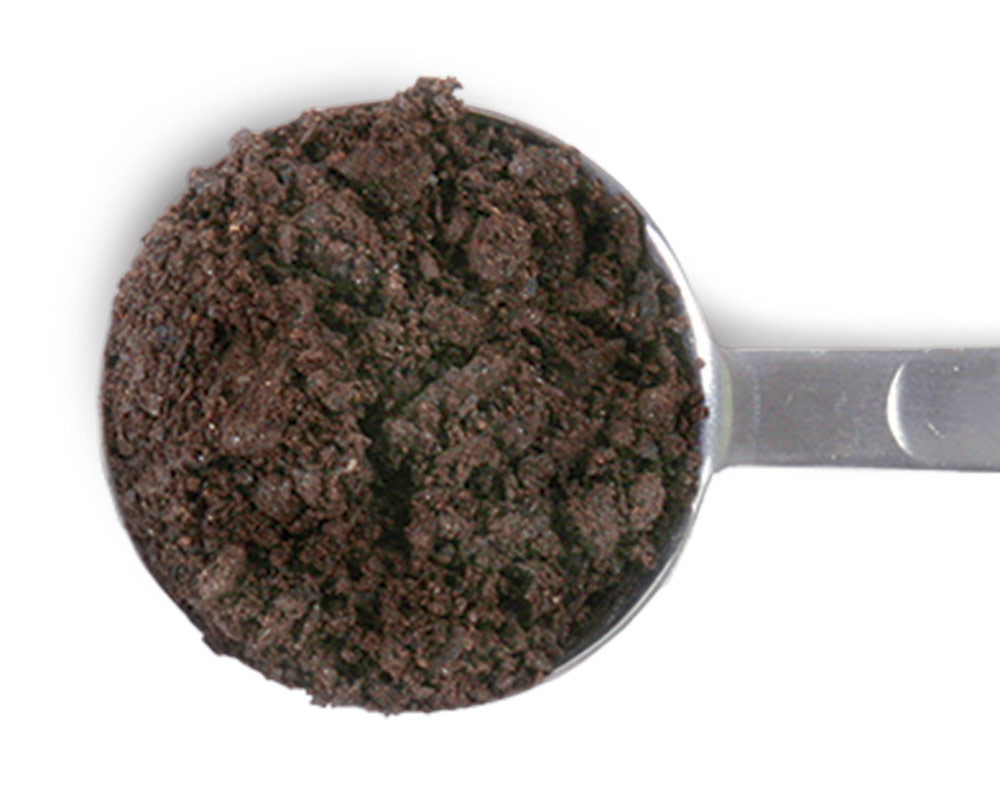 |
Bagged potting soilBagged potting soil is a good base. Not the same as a soilless container mix, a potting-soil blend contains a mixture of ingredients that improve fertility. Avoid brands that include synthetic fertilizers if you want to stay organic. |
CompostCompost is the key to growing organically. Compost adds high amounts of nutrients to a mix. Though you can buy compost in a bag from the store, you can make it for free in your own backyard with a little effort and patience. |
Composted chicken manureComposted chicken manure has the highest natural-nutrient content available. Use it to amp up the fertility of your mix, but never use it raw; it must be composted or it will burn plant roots. Buy it by the bag at a garden center or feed store. |
 |
 |
 |
Garden soilUsing garden soil is a ready way to start a recipe. Good dirt straight from the top few inches of your garden has trace nutrients and minerals that help balance a blend. Don’t use it by itself because it lacks the drainage required for containers. |
Rock dustRock dust helps you mimic native soils. This powder made of pulverized stone contains trace nutrients and minerals from bedrock, the natural source material of all soils. Get it free at a local quarry, or buy a 5-pound bag from mail-order sources. |
Peat mossPeat moss holds moisture, adds nutrients, and increases soil acidity. A compressed bale, available from garden centers and agricultural suppliers, will last the average home gardener several seasons. |
 |
 |
 |
Worm castingsWorm castings are a natural source of fertility. What a worm leaves behind as it eats its way through the soil is high in nutrients and increases soil acidity. Buy a 25-pound bag at organic garden centers or through mail-order suppliers. |
Calcined clayCalcined clay is another term for kitty litter. Kiln-fired, this material holds moisture and nutrients while creating air pockets for roots to absorb oxygen and release carbon dioxide. It is sold at grocery stores as “no lump” kitty litter. |
Charcoal pelletsCharcoal pellets decrease the odor of decomposition. The organic matter used in some recipes is often so rich that it can result in a smelly pot. Adding charcoal pellets, available at aquarium stores, absorbs the odor while improving drainage. |
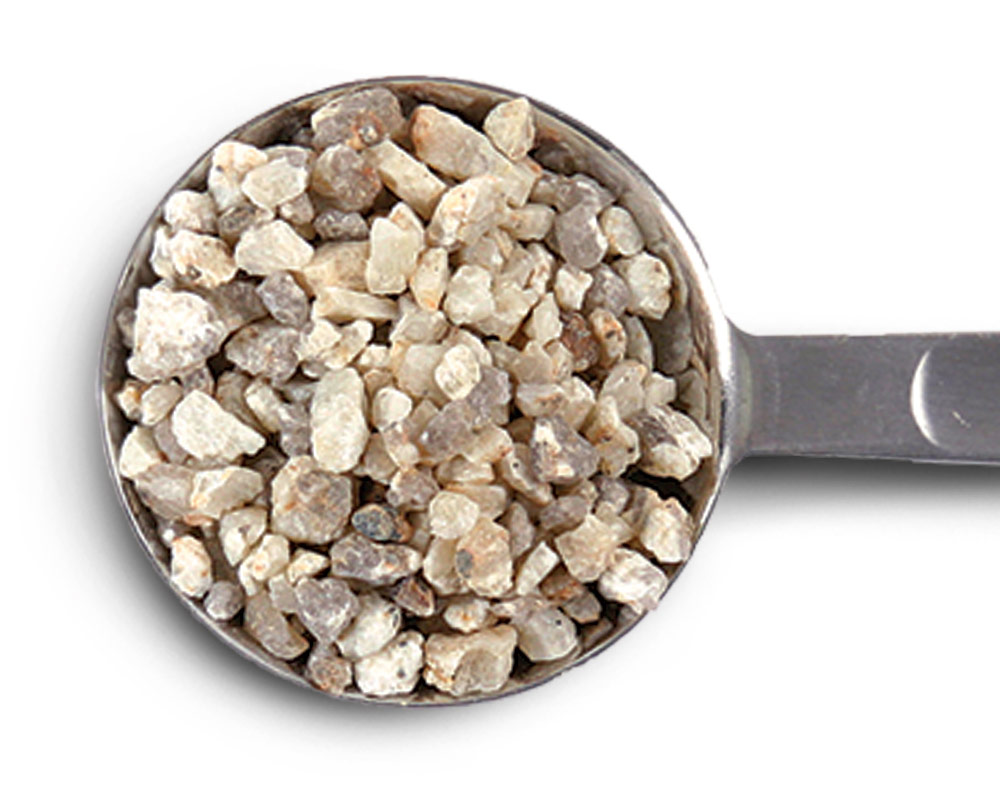 |
 |
 |
Coarse river sandCoarse river sand increases the surface area for roots to cling to. Adding air pockets so that roots can function efficiently, coarse river sand creates a free-draining mix. Buy a small 5-pound bag from bonsai plant growers. |
Expanded shale or slateExpanded shale or slate allows excess water to drain away. This natural rock is kiln-fired to form small pockets on its surface that hold air, moisture, and nutrients, making them available for plants. It is sold in bags as PermaTill or VoleBloc. |
PerlitePerlite is synonymous with good drainage. That white stuff you see in store-bought blends is high-fired volcanic rock. Perlite lightens the soil by creating pockets for water to pass through and air to remain. Find it at any garden center or big-box store. |
Daryl Beyers is a former assistant editor and is a member of the Professional Gardeners’ Guild.
Photos: Krista Hicks Benson
More reading
Videos
Potting Soil Recipe for Annuals
Potting Soil Recipe for Cacti and Succulents
Potting Soil Recipe for Woody Plants and Perennials
Fine Gardening Recommended Products
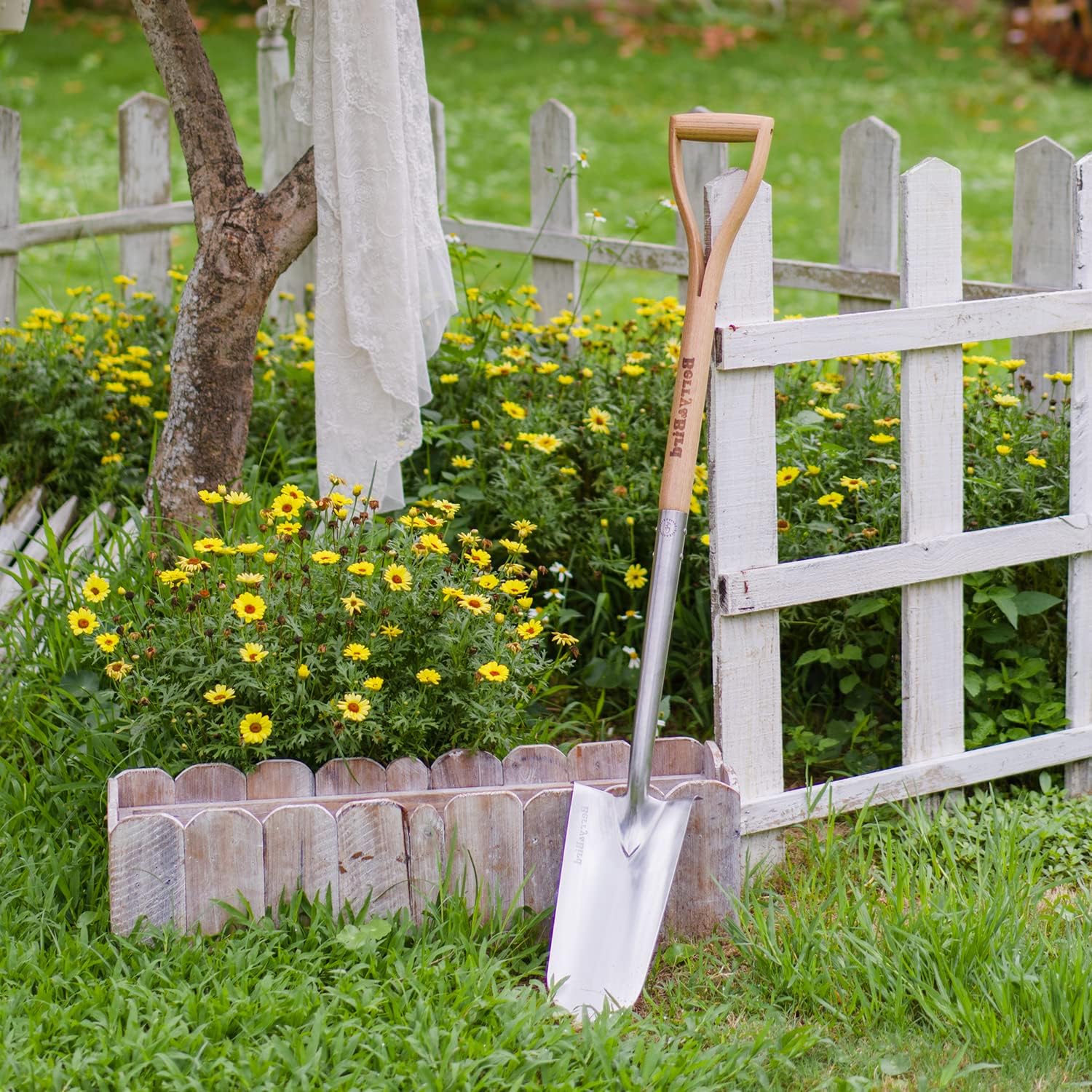
Berry & Bird Rabbiting Spade, Trenching Shovel
Fine Gardening receives a commission for items purchased through links on this site, including Amazon Associates and other affiliate advertising programs.
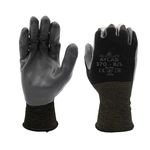
SHOWA Atlas 370B Nitrile Palm Coating Gloves, Black, Medium (Pack of 12 Pairs)
Fine Gardening receives a commission for items purchased through links on this site, including Amazon Associates and other affiliate advertising programs.

Ashman Garden Cultivator (1Pack)
Fine Gardening receives a commission for items purchased through links on this site, including Amazon Associates and other affiliate advertising programs.

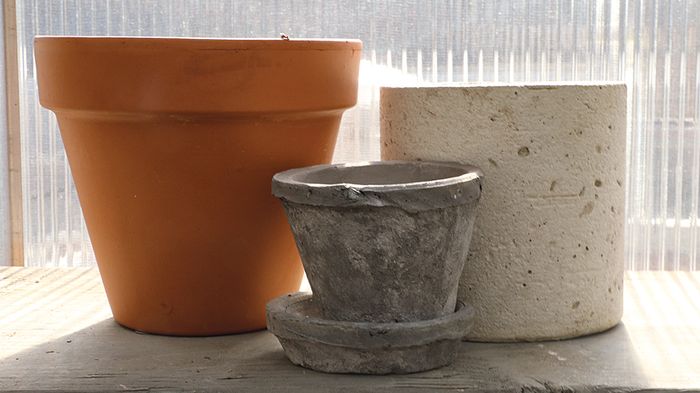

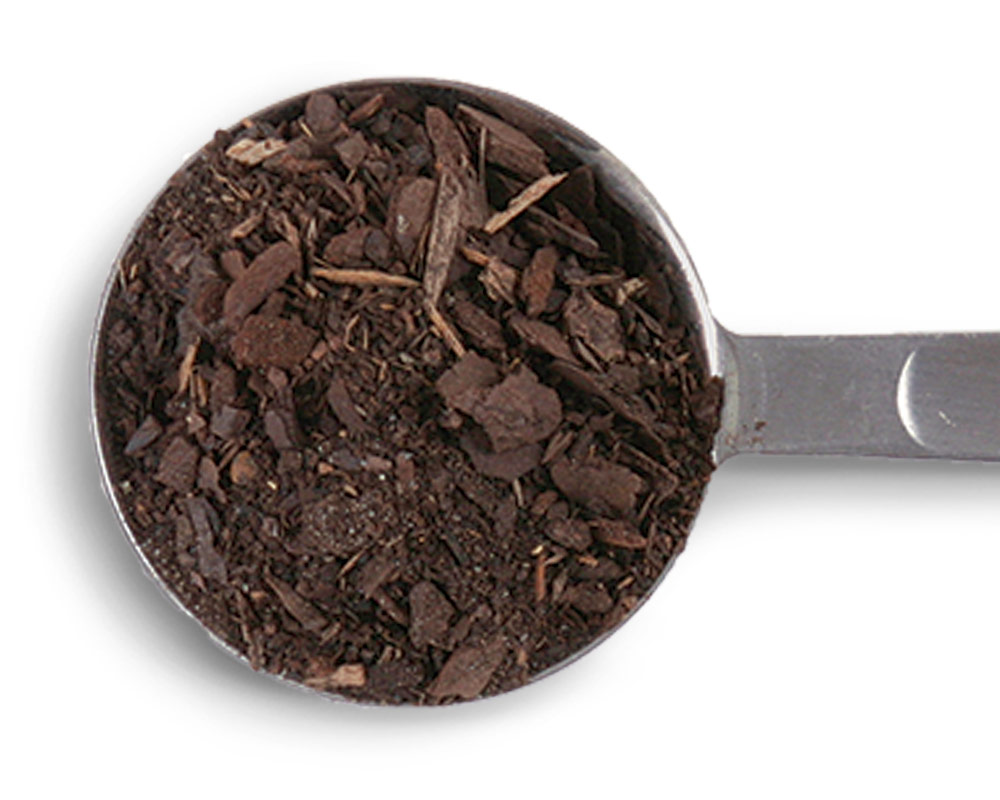





Comments
Log in or create an account to post a comment.
Sign up Log in